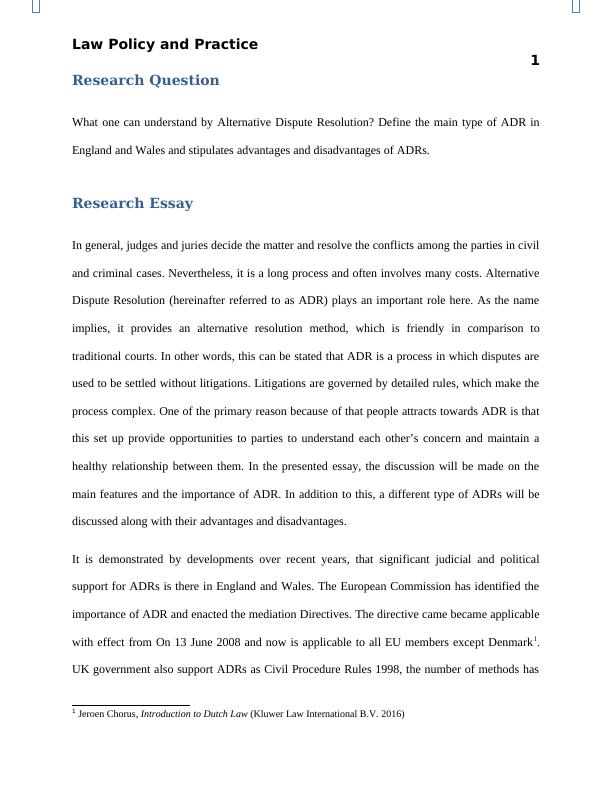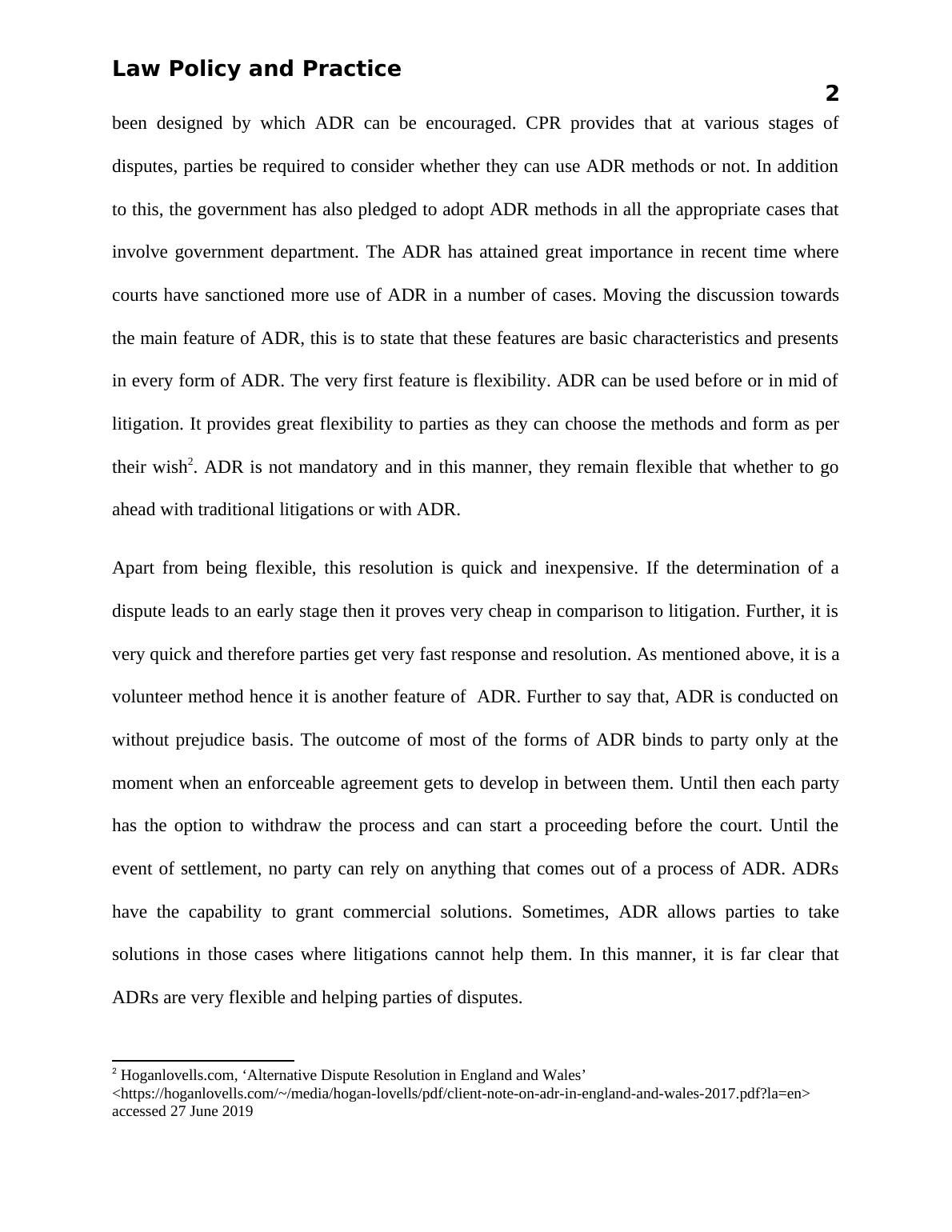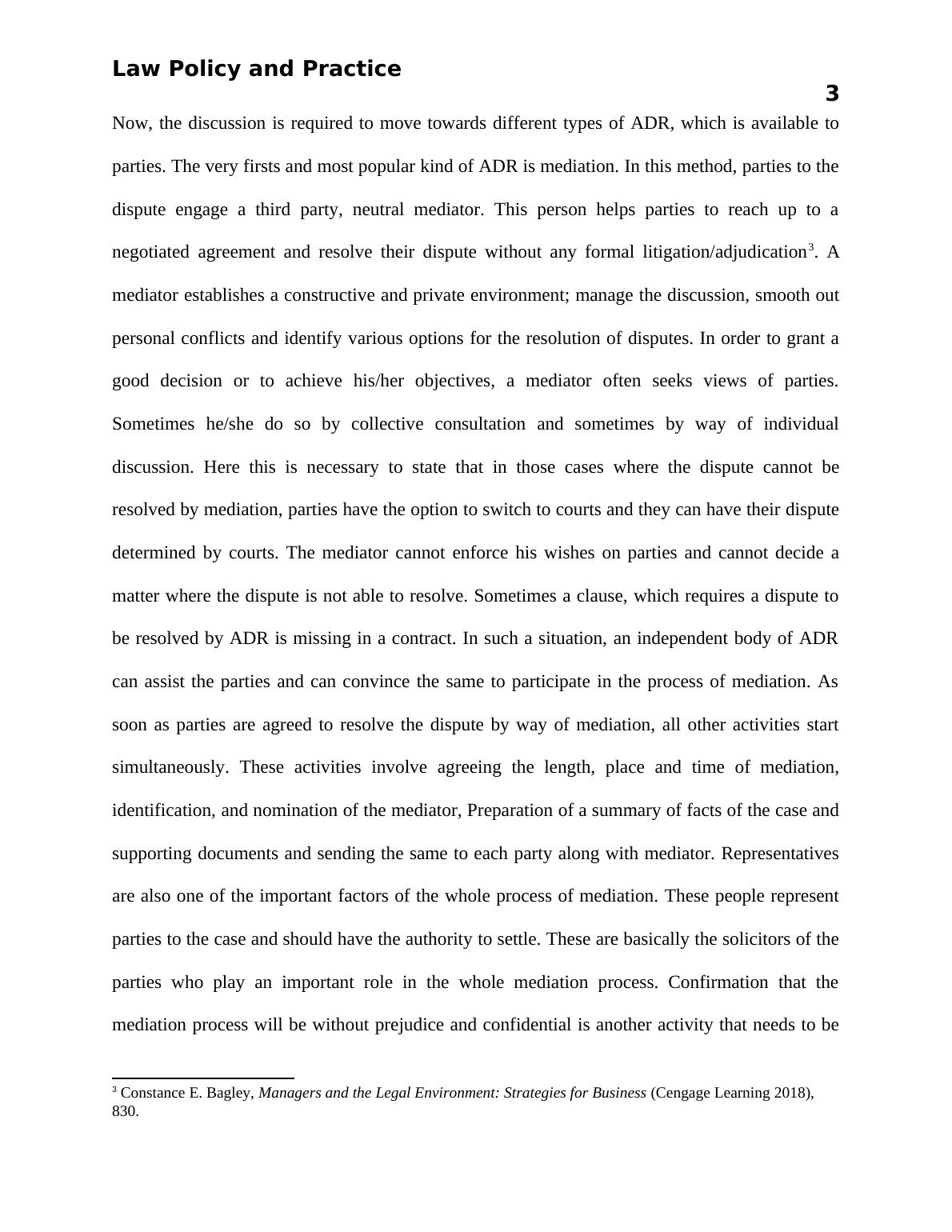Understanding Alternative Dispute Resolution in England and Wales
Write a 2,500-word essay on an aspect of legal systems and processes, fully referenced using OSCOLA. The essay should assess research skills, use of legal and non-legal sources, citation conventions, and appropriate writing style for undergraduate legal study. Choose one topic from a list provided and draft a research title or question.
Added on 2022-11-30
About This Document
Understanding Alternative Dispute Resolution in England and Wales
Write a 2,500-word essay on an aspect of legal systems and processes, fully referenced using OSCOLA. The essay should assess research skills, use of legal and non-legal sources, citation conventions, and appropriate writing style for undergraduate legal study. Choose one topic from a list provided and draft a research title or question.
Added on 2022-11-30
End of preview
Want to access all the pages? Upload your documents or become a member.




